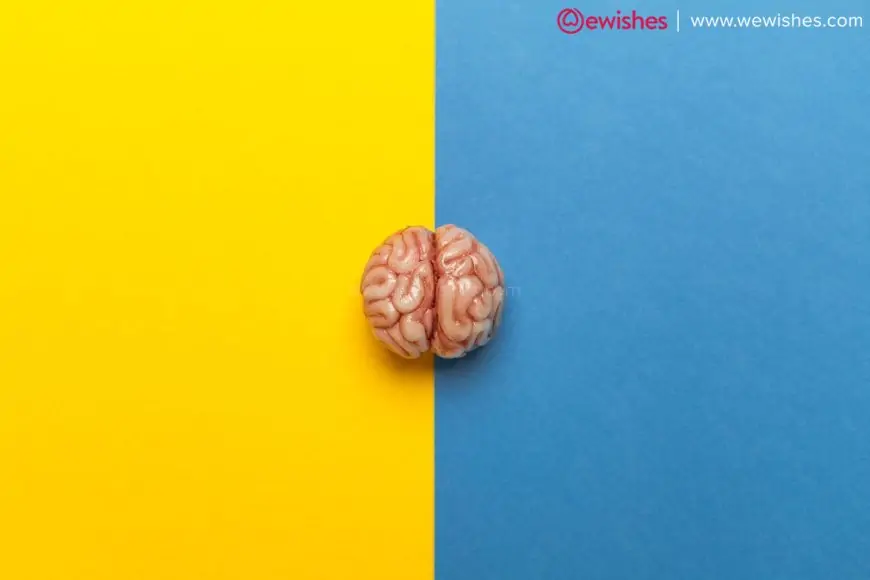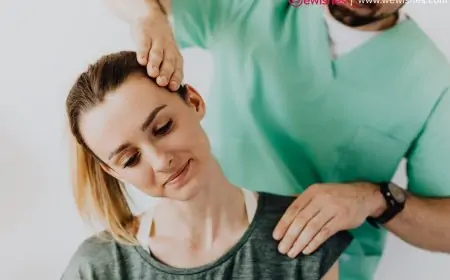You may have heard about dual diagnosis outpatient treatment programs if you or someone you know is battling addiction and mental health difficulties. But what exactly are they? In this blog post, we'll look more closely at what dual diagnosis outpatient treatment programs are and how they might aid those with addiction and mental health issues.
In Los Angeles outpatient rehab programs, clients can learn coping mechanisms to deal with their addiction and mental health issues. Therapists and counselors work with patients to identify triggers that may cause them to relapses, such as stressors or traumatic events.
They also provide treatment plans tailored to each patient’s individual needs so they can effectively manage their condition. To find out more, continue reading!
What Are The Treatments For Dual Diagnosis?
Dual diagnosis meaning is when someone suffers from both a mental illness and an addiction. Mental illnesses include depression, bipolar disorder, schizophrenia, and anxiety disorders. Addictions can include drug abuse, alcohol abuse, and gambling addiction.
Dual diagnosis outpatient treatment programs are designed to treat someone who suffers from both disorders. The program aims to help individuals learn how to manage their mental illness and addiction to lead healthy lives.
These programs typically involve individual and group counseling sessions along with medication management. Participants are also encouraged to practice healthy lifestyle habits such as exercise and good nutrition.
In some cases, individuals may also benefit from participating in a residential treatment program or an intensive outpatient program. Additionally, participants usually receive aftercare support and follow-up services when they complete the program.
What Is The Most Effective Treatment For Dual Diagnosis?
A dual diagnosis is a situation where someone suffers from both a mental health disorder, like depression or anxiety and an addiction to drugs or alcohol.
It can be challenging to treat dual diagnosis patients, as the two conditions can fuel each other. Therefore, the most effective treatment for a dual diagnosis involves an integrated approach that covers both mental health and addiction issues.
This type of treatment should begin with an accurate clinical assessment of both the addiction and mental disorder to develop a personalized plan for treating them both together. The plan may include behavioral therapies such as cognitive-behavioral therapy (CBT) and medications to treat mental disorders.
Additionally, holistic experiences such as art therapy can be used to help participants reconnect with their feelings to cope with life challenges effectively. The goal of treatment is to help individuals learn skills that will enable them to lead fulfilling lives and move away from destructive behaviors. Those struggling with a dual diagnosis can find hope and healing with the right support and interventions.
The Different Types of Clinical Care and Addiction Treatment
Providing ideal care for individuals struggling with addiction requires a careful, personalized approach tailored to their unique needs. It also involves understanding the standard levels of clinical care and addiction treatment that may be recommended based on the severity of the individual’s condition.
Dual Diagnosis treatment, which is an effective approach addressing both substance abuse and any underlying mental health disorders, should always be provided as part of comprehensive care. Medical detoxification is often the next step in recovery, providing close medical monitoring to make the withdrawal period safer and more comfortable.
Inpatient rehab centers are available for those who may need a higher level of ongoing support during their recovery journey, consisting of comprehensive therapies for substance abuse and relapse prevention skills. Intensive outpatient treatment offers some similar elements in an outpatient setting for those further in their recovery who may not require that level of supervision.
Through all these steps, patients can build up their strength and gain insight into long-term lifestyle changes that will help them maintain abstinence after they complete formal treatment. With the right combination of clinical care and addiction treatment levels available, individuals have a better chance of reaching positive outcomes through lasting sobriety.
What Are The Benefits Of Group Therapy For Co-Occurring Disorders?
Group therapy for co occurring disorders is an effective assessment and treatment process that provides individuals dealing with a mental health disorder in conjunction with substance abuse a safe place to discuss their experiences and gain support from others going through similar situations. Group sessions allow individuals to explore behavior, provide feedback, role play and learn new coping strategies for drug and alcohol addiction.
Through the dual diagnosis program, such as cognitive-behavioral therapy, dialectical-behavioral therapy, mindfulness training, and weekly family therapies, members of the group will gain the support they need to stay on track with their recovery journey.

Group therapy also provides individuals in recovery a chance to practice their new thought patterns, communication skills, and problem-solving techniques while encouraging them to make healthier choices.
With guidance and help from peers, therapists, and alcohol or drug counselors, members can build up their self-esteem and learn about relapse prevention tools to help maintain long-term sobriety. In short, group therapy for co occurring disorders offers a powerful way to receive assessment and treatment options in an atmosphere that fosters healthy peer interaction.
By cultivating positive energy among group members, people struggling with addiction can find strength in numbers on the road to recovery.
What Are The Benefits Of Outpatient Therapy?
Outpatient therapy can be a great way to get the support and guidance needed to meet goals related to multiple mental health conditions.
Unlike inpatient treatment programs, outpatient services involve receiving care while living at home or in another supportive environment, such as a sober house, halfway house, or dual diagnosis program. This means that people have the stability of familiar surroundings while still accessing the therapeutic care they need. Outpatient programs also offer clients greater flexibility in terms of scheduling and lifestyle.
Therapy sessions can be scheduled at convenient times throughout the week or month, meaning people can better maintain their normal daily routines and still benefit from treatment.
Those participating in an outpatient program tend to experience a quicker resolution of issues with fewer feelings of stigmatization than those seeking specialized residential care for mental health reasons. For these reasons, many individuals struggling with mild to moderate mental health problems often benefit most from undergoing therapy on an outpatient basis.
In sum, outpatient therapies allow individuals suffering from mental health issues to address their difficulties from the comfort of their homes while still receiving high-quality treatment services -- such as dual diagnosis programs -- that work best for them and their lifestyle needs.
Conclusion:
From the comprehensive care provided by Los Angeles outpatient rehab facilities to the stability of familiar surroundings, it's clear that outpatient therapy offers a wealth of benefits for those seeking treatment for addiction and mental health disorders. Don't be afraid to get assistance if you or anybody you love is battling with addiction.
Programs like dual diagnosis can provide individuals with the tools they need to overcome addiction or bipolar disorder and live healthier, happier life. With the right support system and the dedication to take action, anyone can overcome addiction and regain control of their life. Don’t wait any longer – reach out for help today!


















